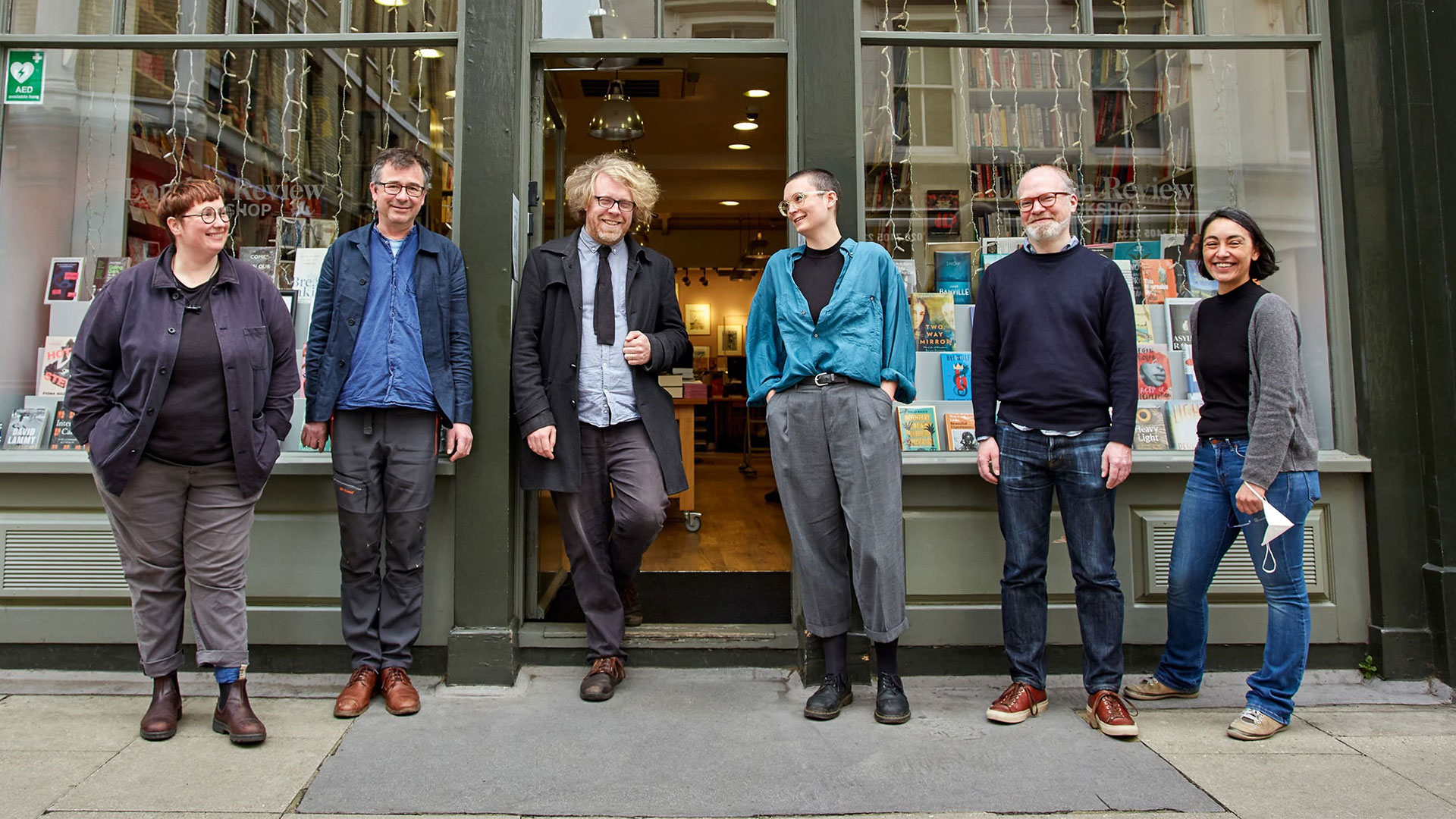You are viewing your 1 free article this month. Login to read more articles.
More coming than going
The London Review Bookshop celebrates 20 years next month—here’s how it has survived and thrived.
Twenty years ago, when a lot of independent booksellers were shutting up shop, the London Review of Books took a leap of faith and opened a bookshop of its own, the idea being that it could become a kind of counterpoint to the magazine. The Cake Shop opened next door a couple of years later. It seemed an unusual thing to do at the time, but a willingness to swim against the tide is one of the reasons we’re still here two decades later. We couldn’t be happier that tide has turned post-Covid, and there’s now talk of an indie bookshop renaissance. One reason for this seems to have been the pandemic itself: the need for escapism reignited a love of reading for a lot of people, while lockdowns made them realise how much they missed bricks-and-mortar browsing.
Before Covid struck we’d been contending with the relentless rise of Amazon, a growing monopoly in the high street book trade and Brexit, as well as the countless minor crises that are all in a day’s work for independent bookshops. And like the many others that have been able to survive and thrive, we’ve adapted in all sorts of creative ways to keep the show on the road and maintain the sense of community, and customer loyalty, that are a bookshop’s lifeblood. We can’t match Amazon’s discounts, but they can’t compete with our expert curation, agenda-setting events programme, celebrated cakes and bookseller recommendations: with the whole experience. We’re proud to be a hub for the Bloomsbury community which we’re lucky to share with abundant independent retailers, including some wonderful specialist and second-hand bookshops. We do what we can to support each other.
A major challenge is how to re-create something of this personal touch online, and this turned out to be something else that the pandemic necessitated and accelerated. We try to reach customers (and LRB subscribers) around the world with products they won’t find anywhere else – most recently, with beautifully produced book bundles based on themes, or to accompany our "Close Readings" podcast courses, or selected by our favourite authors. In the spring of 2020 we took our events programme online, as many did, and a thousand people bought a ticket for one of our first livestreams, with Mary Beard and Rebecca Solnit. It began with a rollcall of the scores of far-flung locations attendees were tuning in from. That kind of thing kept us in good spirits during those difficult months, which turned into difficult years.
A relationship of trust with customers is established and sustained through creativity and freedom, rather than conservatism; through establishing a personal relationship that makes it possible – essential, really – to lean into instincts, hunches and slightly crazy ideas
For the most part, though, it’s a lot of fun, not least because funny things happen in – to – bookshops. We remain grateful to the journalists who took time out of their busy schedules to investigate whether a jar of bees really had been left in the shop by the mysterious #BeeGent in 2019. Conversely, the Cake Shop’s Terry Glover took a call a couple of years later which she initially was sure was a prank, but which turned out to be true: Lena Dunham really was requesting a Kama Sutra-themed cake for her wedding.
There’s a serious point here (as well as a smaller one about imaginative social media) which is probably the most important lesson we’ve learned over the years: that a relationship of trust with customers is established and sustained through creativity and freedom, rather than conservatism; through establishing a personal relationship that makes it possible – essential, really – to lean into instincts, hunches and slightly crazy ideas. My advice for new or potential bookshop owners and managers is that establishing an authentic and consistent identity for your shop is what builds customer loyalty. We continue to curate our stock with both diligence and a free-spirited streak and we’re proud to sell more poetry than many of the capital’s other bookshops combined.
A more specific piece of advice is that merchandise can really help your bottom line. For complicated reasons you can read about elsewhere, the bookshop remains a site of pilgrimage for tourists from South Korea and elsewhere, keen to get their hands on the LRB tote bags that have become such a ubiquitous fashion accessory that a thriving black market for them has sprung up in Seoul.
To mark our twentieth birthday, we’ve invited 20 writers we especially admire to choose the five books they think we’ll need to navigate the next 20 years. Selections in the resulting list of 100 titles range from the hymns of history’s first named poet, Enheduanna, written in the 23rd century BC, all the way through to Deep Wheel Orcadia by Harry Josephine Giles, winner of the 2022 Arthur C Clarke award for science fiction. This feels emblematic of the breadth of preoccupations and ambitions and author relationships that an independent bookshop can make its own over two decades, drawing on the widest possible literary canon to face the future.





















